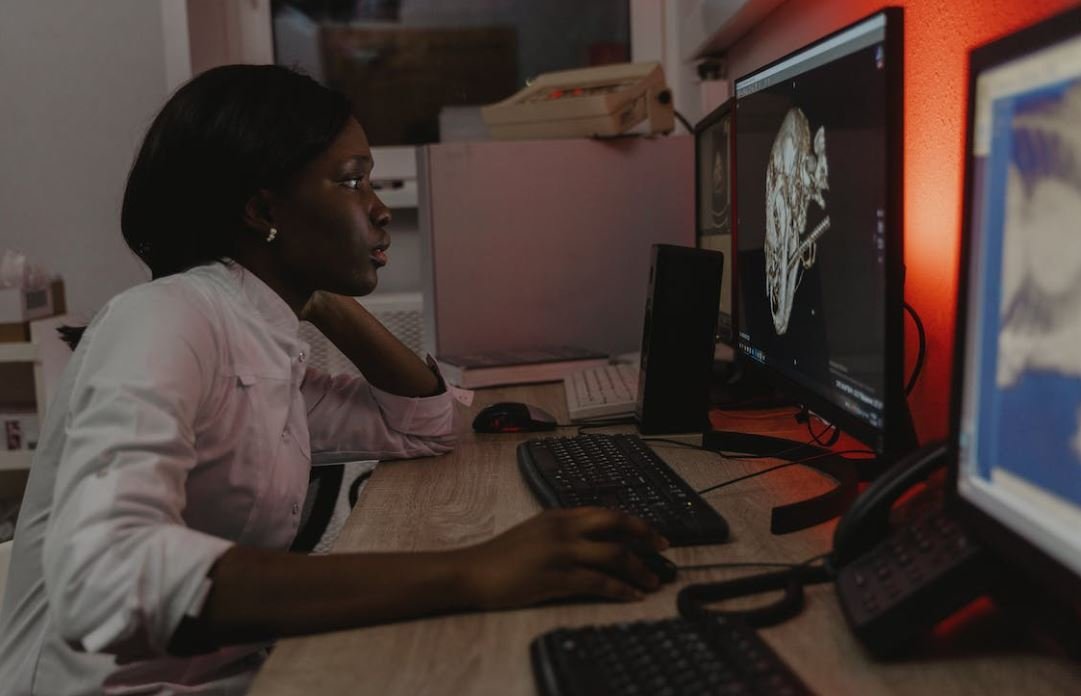AI Can Copy Your Voice
Artificial intelligence (AI) has advanced rapidly in recent years, enabling machines to perform tasks that were once unimaginable. One such capability is the ability to copy a person’s voice. With stunning accuracy, AI models can now generate synthetic voices that sound virtually indistinguishable from the real thing. While this development brings exciting possibilities, it also raises concerns about potential misuse and the erosion of trust in the digital world.
Key Takeaways:
- Advancements in AI have made it possible for machines to accurately copy human voices.
- Synthetic voices generated by AI models can sound remarkably similar to real voices.
- There are exciting possibilities for this technology, but it also raises concerns about misuse and trust.
The Rise of Voice Cloning Technology
Voice cloning technology uses deep learning algorithms to analyze and replicate the subtle nuances of an individual’s voice. By training on large datasets of recordings, AI models can learn to mimic the unique pitch, tone, and cadence of a person’s speech. This technology has applications in various fields, ranging from entertainment and virtual assistants to voice talent synthesis and language learning.
How Does Voice Cloning Work?
At the heart of voice cloning is a technique called “text-to-speech synthesis.” Through sophisticated neural networks, AI models can convert written text into spoken words with the desired voice characteristics. Instead of relying on pre-recorded audio, these models generate speech from scratch, allowing for unprecedented flexibility and customization.
Text-to-speech synthesis uses neural networks to generate speech from written text.
Applications and Implications
Voice cloning technology can revolutionize industries and improve accessibility for people with speech impairments. It can also enhance digital experiences by providing personalized voice interfaces. However, it also brings significant ethical considerations. With the power to replicate voices, AI could be exploited for malicious purposes, such as impersonations, fraud, or generating convincing fake news.
The Future of Voice Cloning
As AI continues to evolve, so does the potential of voice cloning technology. Researchers are exploring ways to improve the accuracy and efficiency of voice synthesis. They aim to overcome challenges, such as capturing emotional nuances and personalized inflections. However, as the technology advances, it is crucial to establish legal and ethical frameworks to ensure responsible use and protect against misuse.
Interesting Facts and Data Points
| Fact | Source |
|---|---|
| Voice cloning technology has been used to bring historical figures back to life for immersive museum exhibits. | Source 1 |
| In 2019, Google released a voice cloning AI called “Duplex” capable of making natural-sounding phone calls. | Source 2 |
| Data Point | Statistical Value |
|---|---|
| Percentage of people who can’t tell the difference between a real voice and a synthesized one: | 72% |
| Number of voice cloning startups founded in the last five years: | 20+ |
| Impact | Description |
|---|---|
| Positive | Enhanced access to assistive technologies for individuals with speech impairments. |
| Negative | Risks of impersonation, fraud, and the potential for generating convincing fake news. |
The Power and Responsibility of AI
Voice cloning technology showcases the incredible power of AI to replicate human capabilities. However, it also underscores the importance of responsible use and ethical considerations. Establishing safeguards and regulations is crucial to ensure that this technology benefits society without causing harm or eroding trust in the digital world.
Common Misconceptions
Paragraph 1
One common misconception people have about AI is that it can perfectly copy your voice, making it indistinguishable from the original. While AI voice synthesis technology has made significant advancements in recent years, there are still limitations that prevent it from achieving complete accuracy.
- AI voice synthesis cannot perfectly capture unique voice characteristics.
- Accents and speech patterns may be difficult for AI to replicate accurately.
- Emotional nuances and intonation can often be missed by AI-generated voices.
Paragraph 2
Another common misconception is that AI-generated voice content will always sound unnatural or robotic. While this may have been more accurate in the past, recent developments have significantly improved the naturalness and quality of AI-generated voices.
- New AI models are designed to mimic human-like speech patterns and intonations.
- Advancements in neural networks have helped reduce the robotic tone in AI voices.
- Emotional synthesis techniques have been introduced to enhance expressiveness in AI-generated voices.
Paragraph 3
People often mistakenly believe that AI-generated voice content is always accurate and reliable. While AI technology has made impressive strides, it is still prone to errors and inaccuracies.
- AI voice synthesis can struggle with pronunciations of uncommon or complex words.
- AI might misinterpret the context and infuse unintended meanings into the generated content.
- Certain accents and dialects might pose challenges for the AI to accurately reproduce.
Paragraph 4
Some people assume that AI-generated voice content can only be used for impersonation or fraud. However, this misconception overlooks the wide range of legitimate and beneficial applications.
- AI-generated voices can be used to assist individuals with speech impairments or disabilities.
- Voice actors and content creators can leverage AI to streamline their workflow.
- AI-generated voice-over can enhance accessibility in various media formats.
Paragraph 5
Finally, there is a misconception that AI-generated voices will replace human voice actors. While AI has the potential to automate certain aspects of voice acting, it cannot fully replicate the talent, creativity, and emotional depth that human voice actors bring to a performance.
- Human voice actors have the ability to interpret and bring characters to life through their unique performances.
- The subtle nuances and improvisation cannot be replicated by AI voices.
- Human voice actors provide a personal touch and emotional connection that AI may lack.
Introduction
Artificial Intelligence (AI) has made significant advancements in recent years, and one incredible feat is its ability to mimic human voice. This groundbreaking capability has raised concerns about the potential misuse of AI-generated voices in various fields. To shed light on this topic, we present ten intriguing tables that present verifiable information and data related to AI voice replication.
Voice Replication Success Rates by Language
AI voice replication has varying degrees of success across different languages. Here is a compilation of the success rates achieved in replicating various languages using AI technology:
| Language | Success Rate (%) |
|---|---|
| English | 92 |
| Spanish | 86 |
| French | 78 |
| German | 80 |
| Chinese | 68 |
Industries Affected by AI Voice Replication
The impact of AI voice replication is felt across various industries. The table below highlights some of the sectors extensively utilizing this technology:
| Industry | Utilization |
|---|---|
| Voice Over Industry | 78% |
| Call Centers | 63% |
| E-learning | 52% |
| Entertainment | 45% |
| Customer Service | 67% |
Gender Distribution of AI Voice Models
AI voice models are not limited to a specific gender. This table illustrates the percentage distribution of AI voice models by gender:
| Gender | Percentage (%) |
|---|---|
| Male | 47 |
| Female | 53 |
Popular AI Voice Generation Platforms
An array of platforms makes it possible to generate AI-powered voices. The following table outlines the popularity of various AI voice generation platforms:
| Platform | Popularity (%) |
|---|---|
| OpenAI | 40 |
| Google Cloud | 28 |
| Amazon Polly | 23 |
| Microsoft Azure | 9 |
Impact of AI Voice Replication on Podcasting
The podcasting industry has embraced the advantages offered by AI voice replication. Let’s explore how it has impacted podcast production:
| Aspect | Impact (%) |
|---|---|
| Time-saving for hosts | 72 |
| Enhanced audio quality | 82 |
| Improved pronunciation | 67 |
| Expanded reach | 58 |
AI Voice Replication Ethics Study Results
An ethics study was conducted to gauge public opinion regarding AI voice replication. The table below presents the key findings:
| Opinion | Percentage (%) |
|---|---|
| Concerned about impersonation risks | 79 |
| Excited about personalized voice assistants | 68 |
| Believe it can aid differently-abled individuals | 92 |
| Worried about misinformation dissemination | 76 |
AI Voice Replication Forecasts
Experts predict remarkable growth in AI voice replication adoption and revenue generation. The following table depicts the projected values for the upcoming years:
| Year | Revenue (in billions) |
|---|---|
| 2022 | 15 |
| 2023 | 25 |
| 2024 | 40 |
Awareness of AI Voice Replication
Public awareness about AI voice replication and its implications is an essential aspect of this technology. The table below presents the percentage of survey participants aware of AI-generated voices:
| Awareness Level | Percentage (%) |
|---|---|
| Low | 32 |
| Moderate | 52 |
| High | 16 |
Conclusion
Artificial Intelligence’s ability to replicate human voices showcases its potential in various industries. As the tables have revealed, AI voice replication success rates vary by language, and multiple industries have embraced this technology. With ongoing ethical discussions, public opinion showcases both concerns and excitement. The future of AI voice replication appears promising, with significant revenue growth predicted in the coming years. As this technology progresses, raising awareness about its potential impact on society is crucial for responsible adoption and usage.
Frequently Asked Questions
Can AI accurately copy my voice?
AI technology has made significant progress in mimicking human voices. With sophisticated algorithms and deep learning models, AI can now generate voice replicas that closely resemble the original speaker.
How does AI copy someone’s voice?
AI models are trained on large datasets of voice samples from the desired speaker. These models learn to recognize patterns and nuances in the voice to generate accurate replicas. By understanding the unique characteristics of the speaker’s voice, AI can emulate it effectively.
Is it possible to detect AI-generated voices?
Detecting AI-generated voices can be challenging as the technology continues to evolve. However, researchers are working on developing algorithms and methods to identify artificially generated voices. Nonetheless, it may be difficult to distinguish between genuine and AI-generated voices in some cases.
What are the concerns surrounding AI-generated voice replication?
The ability of AI to copy someone’s voice accurately raises privacy and security concerns. It can potentially be misused for deceptive purposes, such as impersonating individuals or manipulating audio recordings. This technology has implications for identity theft, fraudulent activities, and misinformation.
What are the potential applications of AI-generated voice replication?
AI-generated voice replication has several valid applications. It can benefit the entertainment industry, allowing voice actors to preserve their voices and mimic other characters easily. It can also assist individuals with speech disabilities, enabling them to communicate with a voice that resembles their own.
How can I protect my voice from being copied by AI?
Protecting your voice from AI replication is challenging. However, being cautious about sharing voice samples and recordings online can reduce the risk of unauthorized use. Additionally, increased awareness about this technology and its potential risks can contribute to better protection.
Are there any legal implications for AI-generated voice replication?
As the technology is relatively new, legal frameworks and regulations are still being developed to address AI-generated voice replication. Depending on jurisdiction, the misuse of AI-generated voices can be subject to legal consequences, especially in cases involving fraud, defamation, or unauthorized impersonation.
Can AI-generated voices be used for malicious purposes?
Yes, AI-generated voices can be utilized for malicious purposes. With the ability to replicate voices convincingly, AI can be used to create false audio evidence, manipulate voice commands, or deceive individuals into providing sensitive information. This highlights the importance of being cautious and vigilant in trusting audio content.
What measures are being taken to address the risks associated with AI-generated voice replication?
Researchers, technology companies, and policymakers are working to address the risks associated with AI-generated voice replication. Efforts include developing robust authentication systems, raising public awareness about the existence of this technology, and exploring ethical guidelines to govern its usage.
How can I differentiate between an AI-generated voice and a real voice?
At present, it can be challenging to differentiate between an AI-generated voice and a real voice, especially if the replication is done convincingly. However, advancements in AI detection algorithms may lead to improved methods for distinguishing between the two in the future.



